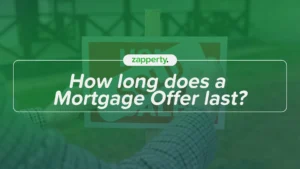Gazumping is a contentious issue in the UK housing market. It happens when a seller accepts an offer from a buyer but later agrees to a higher bid from another party before contracts are exchanged. While this is legal in England and Wales, it raises ethical concerns and potential risks for sellers.
This article explores why sellers engage in gazumping, the pros and cons of the practice, and alternative ways to secure the best possible offer without damaging their reputation.
Why Do Sellers Gazump Buyers?
From a seller’s perspective, gazumping often comes down to financial and practical reasons. Some common factors include:
A Higher Offer Becomes Available
One of the most obvious reasons sellers gazump is the opportunity to secure a higher price. If a new buyer offers significantly more, a seller may feel justified in reconsidering their original agreement.
The Buyer Is Moving Too Slowly
Delays in securing a mortgage, arranging surveys, or completing legal paperwork can frustrate sellers. If another buyer appears to be in a stronger financial position and can complete the transaction more quickly, switching may seem like a practical choice.
Competitive Market Conditions
In high-demand areas, bidding wars are common. Sellers may feel pressure to keep their property on the market for as long as possible to attract the best possible price.
Advice from Estate Agents
Some estate agents encourage sellers to consider better offers even after an agreement is made. Since estate agents earn commission based on the sale price, they may be motivated to push for the highest possible amount.
Changes in Personal Circumstances
A seller’s financial situation or future plans may shift, making a better offer more appealing or a quicker sale necessary.
While these reasons may seem logical, gazumping comes with its own set of risks and consequences.
Is Gazumping Legal for Sellers?
Gazumping is legal in England and Wales because an accepted offer is not legally binding until contracts are exchanged. Until that point, a seller is within their rights to accept a better offer.
In Scotland, however, gazumping is rare due to stricter legal requirements. Once an offer is formally accepted, the sale becomes legally binding, meaning sellers cannot easily back out.
While legal, gazumping is often viewed as an unfair practice that undermines trust in property transactions. Learn more about gazumping laws in the UK in our recently published blog!
Can a Seller Back Out After Accepting an Offer?
Yes, a seller can withdraw from a sale before contracts are exchanged. However, doing so can cause complications, particularly if the original buyer has already spent money on legal fees, surveys, or mortgage applications.
Once contracts are exchanged, backing out can lead to legal consequences. At that stage, the seller may be liable for the buyer’s costs or even face legal action for breach of contract.
The Pros and Cons of Gazumping for Sellers
Advantages
- Higher Sale Price – Accepting a better offer can lead to greater financial gain, especially in a competitive market.
- Potential for a Faster Sale – If the new buyer is more prepared, the transaction may move forward more quickly.
- No Legal Obligation Before Contract Exchange – Sellers have the flexibility to change their minds until contracts are signed.
Risks and Downsides
- Reputational Damage – Gazumping can create a negative impression, potentially making it harder to sell future properties.
- Legal Risks – While not illegal, withdrawing from an agreed sale can lead to disputes, particularly if the original buyer tries to claim losses.
- Losing a Reliable Buyer – A higher offer does not always mean a stronger buyer. If the new buyer backs out later, the seller may be left without a sale.
While gazumping may seem beneficial in the short term, it can carry long-term risks that outweigh the financial gains.
Alternative Strategies to Maximise Offers Without Gazumping
Sellers who want to secure the best price without the ethical concerns of gazumping have other options:
Set a Shorter Exchange Deadline
By agreeing to a quick exchange of contracts, sellers can reduce the risk of receiving higher offers later in the process. This creates urgency for buyers and helps ensure a smoother transaction.
Request Best and Final Offers Upfront
Instead of accepting the first bid, sellers can ask all interested buyers to submit their best offer. This allows for a competitive process without the need to backtrack on an accepted offer.
Use an Exclusivity Agreement
A lock-in or exclusivity agreement prevents the seller from accepting another offer within a set timeframe. This reassures buyers and helps prevent delays.
Sell to a Cash Buyer
Cash buyers, such as property investment companies, can provide certainty and avoid gazumping altogether. With no reliance on mortgage approvals, the sale process is often faster and more secure.
Handling Multiple Offers Fairly
Estate agents recommend transparency and fairness when managing multiple offers. Sellers should:
- Inform all interested buyers that multiple offers exist.
- Allow all buyers the chance to improve their bids before making a decision.
- Avoid misleading buyers about competing offers, which could damage trust and lead to legal disputes.
By handling offers ethically, sellers can secure a strong deal while maintaining their reputation in the property market.
Conclusion: Should Sellers Gazump Buyers?
Gazumping remains a legal but controversial practice. While sellers can benefit financially, the ethical and reputational risks should not be ignored.
Instead of gazumping, sellers should explore fairer alternatives like shorter exchange deadlines, best-and-final offers, or selling to a guaranteed cash buyer like Zapperty.
For more insights into gazumping laws and strategies, check out our full guide: What is Gazumping?.




